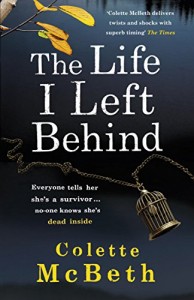 The Life I Left Behind by Colette McBeth published by Headline Review
The Life I Left Behind by Colette McBeth published by Headline Review
The Girl Who Wasn’t There by Ferdinand von Schirach, translated by Anthea Bell, published by Little, Brown
Cold Cold Heart by Tami Hoag published by Orion UK, Dutton US
Gun Street Girl by Adrian McKinty published by Serpent’s Tale UK, Seventh Street Books US
The Missing and the Dead by Stuart MacBride published by HarperCollins
Why read crime novels? Why read novels at all? Some people want thrills and high tension; others, the kind of fairy tale that generates terror followed by the satisfaction of watching evil-doers suffer horrible punishment. A window into another life or a guide to one’s own are better reasons to invest time and emotion in someone else’s imaginative world. This month’s crime novels offer something to satisfy most needs.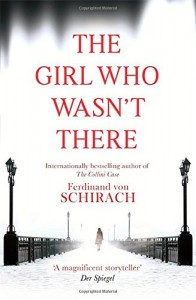
Colette McBeth describes an attempt by one woman to right a dreadful injustice and by another to find a way to live after experiencing unspeakable violence and fear in London. There is a whiff here of those traditional romances in which the virtuous heroine has to choose between two men, one of whom is as fair and gentle as St John Rivers and the other as dark (of heart) and threatening as Mr Rochester, and inevitably makes the wrong choice. But there is more than enough pace and intrigue in The Life I Left Behind to outweigh the familiar theme. My only real quarrel with the novel is that one character narrates from beyond the grave in a way that is unnecessary to the narrative. All the information provided could just as well have been offered in flashback and with more credibility.
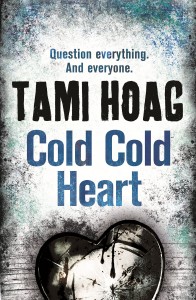 Ferdinand von Schirach’s The Girl Who Wasn’t There, which has been beautifully translated from the German by Anthea Bell, is a more literary novel. His main character is Sebastian von Eschburg, who witnessed violence at far too young an age. The first experience was watching his father kill and gralloch (disembowel) a deer; the second was finding his father’s headless body. For the rest of Sebastian’s life, he struggles to create art that will make sense of the gap between what is seen and what it means. This is a chillingly alluring excursion into psychology and suffering.
Ferdinand von Schirach’s The Girl Who Wasn’t There, which has been beautifully translated from the German by Anthea Bell, is a more literary novel. His main character is Sebastian von Eschburg, who witnessed violence at far too young an age. The first experience was watching his father kill and gralloch (disembowel) a deer; the second was finding his father’s headless body. For the rest of Sebastian’s life, he struggles to create art that will make sense of the gap between what is seen and what it means. This is a chillingly alluring excursion into psychology and suffering.
Tami Hoag takes another familiar tradition and brings a new aspect to the fore. Her heroine, Dana Nolan, survived the vile tortures of a sadistic serial killer determined to make her his ninth victim. Cold Cold Heart explores her fight to regain some kind of bearable existence, with a damaged brain and a mind full of terrible memories. Her struggles are complicated by her stepfather’s need for great PR as he runs for office, and the resurgence of old relationships in her home town in Indiana. I wish Hoag had not felt it necessary to describe Dana’s suffering in such detail in the prologue, but I had great sympathy with her fight for a bearable mental and emotional life.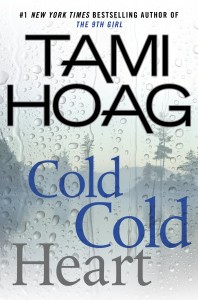
Adrian McKinty’s Catholic detective Sean Duffy has to battle on many fronts as he investigates crime in Northern Ireland during the Troubles, working in a predominantly Protestant police force. But he won’t give in and he won’t take the easy route of stopping short of his goals to appease the powerful or the dangerous. Gun Street Girl is a definitely a window on to another place and another time, and it is as gripping as it is illuminating.
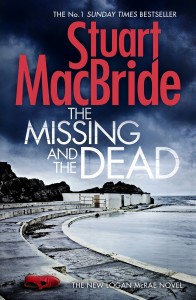 Stuart MacBride has been known to include some pretty stomach-turning violence in past novels, but The Missing and the Dead represents a change of tack. Logan McRae, an acting DI, is sent to organize routine policing out in the Aberdeenshire countryside. McRae, ‘Laz’ to his friends and colleagues after a more or less miraculous return from the dead, has always been an appealing character without being a model of boring virtue. Here, humiliated at being pushed away from serious crime and squeezing every penny from his dwindling resources to fund his damaged girlfriend’s nursing care, he is even more attractive than usual. MacBride has a terrific sense of humour, which lightens Laz’s grim load (and his reader’s hearts) as he deals with the inadequate and the miserable and their pathetic crimes. Occasionally something serious is done and then he has to fight his rivals in the force to keep the big stuff for his team to investigate. The novel is a bit too long and for my taste a subplot about psychotic siblings could have been dropped with advantage, but I really enjoyed its examination of how a good man struggles to retain his values under serious provocation.
Stuart MacBride has been known to include some pretty stomach-turning violence in past novels, but The Missing and the Dead represents a change of tack. Logan McRae, an acting DI, is sent to organize routine policing out in the Aberdeenshire countryside. McRae, ‘Laz’ to his friends and colleagues after a more or less miraculous return from the dead, has always been an appealing character without being a model of boring virtue. Here, humiliated at being pushed away from serious crime and squeezing every penny from his dwindling resources to fund his damaged girlfriend’s nursing care, he is even more attractive than usual. MacBride has a terrific sense of humour, which lightens Laz’s grim load (and his reader’s hearts) as he deals with the inadequate and the miserable and their pathetic crimes. Occasionally something serious is done and then he has to fight his rivals in the force to keep the big stuff for his team to investigate. The novel is a bit too long and for my taste a subplot about psychotic siblings could have been dropped with advantage, but I really enjoyed its examination of how a good man struggles to retain his values under serious provocation.
